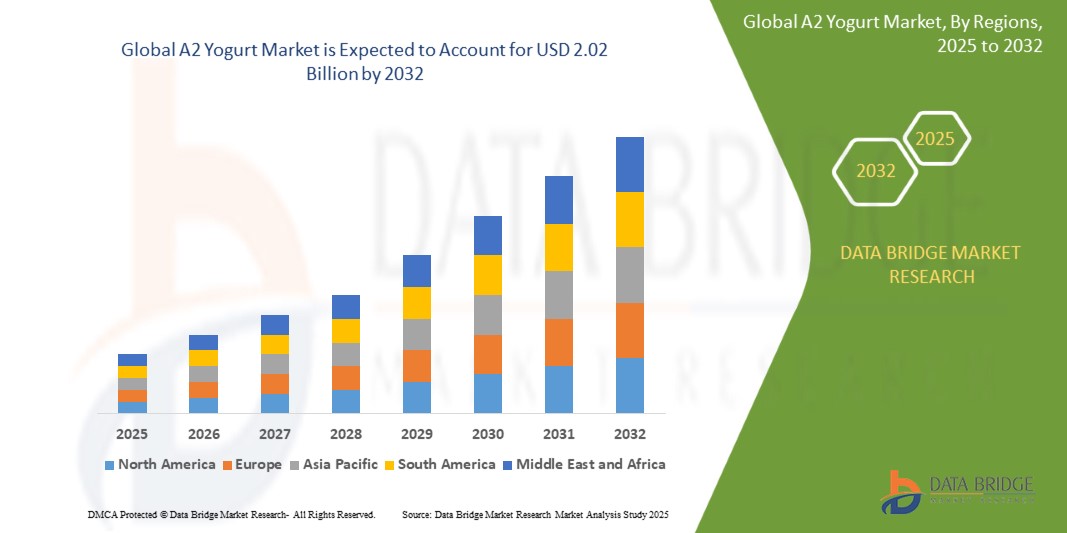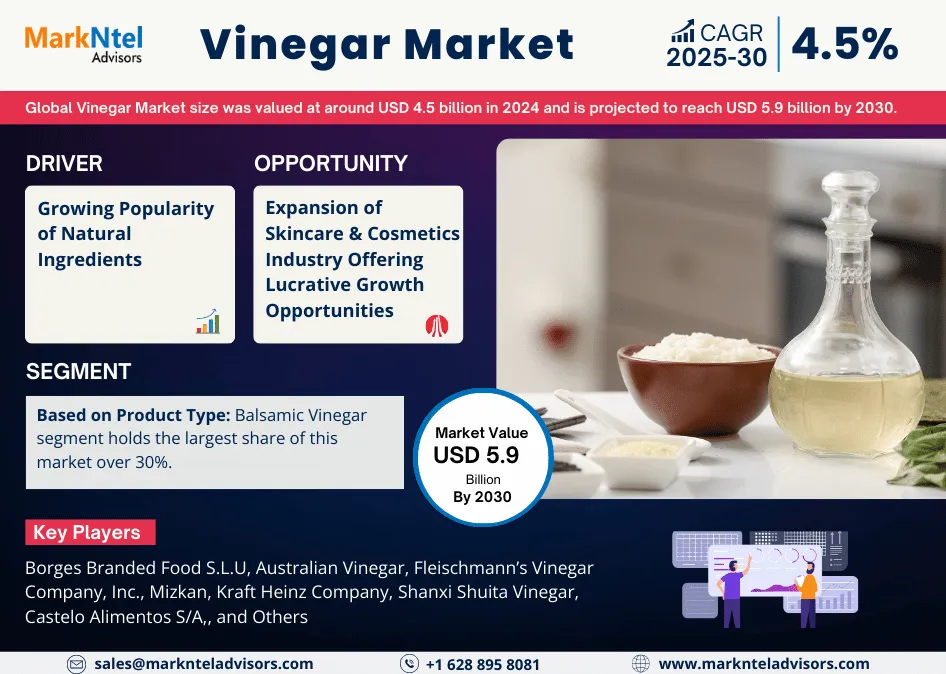
The global dairy industry is undergoing a remarkable transformation. Among the new segments emerging, A2 yogurt has captured attention for its unique health benefits and targeted appeal. Unlike conventional yogurt, which contains both A1 and A2 beta-casein proteins, A2 yogurt is made from milk that contains only the A2 beta-casein. This difference is significant for consumers who report digestive discomfort with standard dairy products.
Consumers today are seeking dairy products that are both functional and easy on the digestive system. As a result, A2 yogurt has evolved from a niche health item into a mainstream product, gaining shelf space in supermarkets and interest from health-conscious individuals. Its growth has been bolstered by rising awareness of lactose intolerance, food sensitivity, and a global shift toward cleaner, more natural products.
Global A2 yogurt market size was valued at USD 1.32 billion in 2024 and is projected to reach USD 2.02 billion by 2032, with a CAGR of 5.5% during the forecast period of 2025 to 2032.
Access Full 350 Pages PDF Report @
https://www.databridgemarketresearch.com/reports/global-a2-yogurt-market
Market Size
The A2 yogurt market has shown significant growth over the last five years. In 2024, the global A2 yogurt market was valued at approximately USD 1.5 billion. Projections indicate a compound annual growth rate (CAGR) of 13%, with the market expected to exceed USD 3.2 billion by 2030.
This expansion is driven by increasing consumer preference for gut-friendly and protein-rich foods, along with greater availability in urban markets. North America and Asia-Pacific remain the largest regions in terms of market size, with the United States, China, and India being key contributors. Europe, too, is catching up as awareness around A2 dairy rises.
In particular, premium dairy categories are seeing robust performance, and A2 yogurt falls comfortably in that bracket. Growth is not limited to developed nations; emerging economies are witnessing increased demand thanks to changing lifestyles and growing disposable incomes.
Market Share
A2 yogurt represents a growing share within the overall yogurt segment. As of 2024, it accounts for 6-8% of the global yogurt market. In markets such as Australia and New Zealand—where A2 Milk Company originally pioneered the category—A2 yogurt commands a more significant portion, estimated at 15-20% of the total yogurt segment.
Major players in the space include The A2 Milk Company, Nestlé, and Danone, all of whom have introduced A2 yogurt lines to respond to consumer demand. Regional brands are also entering the segment with localized flavors and packaging to cater to native tastes. Startups and health-focused dairy brands are innovating with plant-based blends, probiotics, and sustainable packaging to gain competitive advantage.
Market share is expected to increase rapidly over the next five years as more consumers shift from conventional dairy to A2 variants. Retailers are also dedicating more shelf space to functional dairy, enabling broader access and faster market penetration.
Market Opportunities and Challenges
Opportunities:
-
Health and Wellness Trend: As consumers increasingly prioritize gut health, clean labels, and functional nutrition, A2 yogurt is well-positioned as a product that offers both taste and digestibility.
-
Product Innovation: Flavored A2 yogurts, high-protein versions, probiotic-rich varieties, and drinkable formats offer scope for product diversification.
-
Geographic Expansion: The market has room to grow in Latin America, the Middle East, and parts of Africa where the health food movement is gaining momentum.
-
Digital Distribution: Online grocery platforms and health e-commerce sites present untapped potential for brand growth and direct-to-consumer strategies.
-
Brand Collaboration: Partnerships with fitness influencers, dieticians, and healthcare providers can improve awareness and trust.
Challenges:
-
Price Sensitivity: A2 yogurt is more expensive than regular yogurt due to limited milk supply and processing costs. This may deter budget-conscious consumers.
-
Consumer Awareness: Many consumers still do not understand the difference between A1 and A2 proteins. Education is essential for adoption.
-
Regulatory Landscape: Labeling laws vary across countries, and strict dairy regulations can impact production, import, and marketing efforts.
-
Supply Chain Constraints: Since A2 milk must come from specially bred cows, the supply is not as readily scalable as traditional milk sources.
-
Competition: Plant-based yogurt alternatives are also targeting the same health-conscious segment. Differentiation is key.
Market Demand
The demand for A2 yogurt is rising steadily across all demographics, especially among Millennials and Gen Z who are more likely to seek out gut-friendly and ethically sourced foods. Parents are choosing A2 yogurt for children due to perceived digestibility. Senior citizens with dairy sensitivities are also contributing to increased demand.
Foodservice and hospitality industries are beginning to incorporate A2 yogurt into menus as consumer requests increase. Functional food aisles in supermarkets are increasingly populated with A2 products, including yogurt, cheese, and milk.
In urban centers, the demand is particularly high where consumers are actively switching to premium dairy alternatives. A2 yogurt is being used in smoothies, breakfast bowls, and cooking recipes, broadening its usage beyond traditional consumption.
Market Trends
-
Clean Labeling: Consumers prefer yogurts with minimal ingredients, no artificial preservatives, and visible health benefits. A2 yogurt brands are focusing on simple formulations.
-
Flavored and Fortified Variants: A2 yogurt with added superfoods like turmeric, chia seeds, and berries is gaining traction.
-
Sustainable Packaging: Eco-friendly materials and reusable containers are becoming essential components of brand strategy.
-
Local Sourcing: Dairy producers are collaborating with local farms to ensure quality A2 milk supply and build community-centric narratives.
-
Scientific Validation: Brands are investing in research and clinical studies to validate the digestive health claims of A2 beta-casein, offering credibility to skeptical consumers.
-
Hybrid Products: A2 yogurt combined with plant-based elements such as almond or oat milk is creating a new sub-segment for flexible dieters.
-
Personalized Nutrition: Subscription-based yogurt plans tailored to dietary needs are being explored as a way to meet individual health goals.
Conclusion
The A2 yogurt market is at an exciting inflection point. Supported by strong consumer demand, health-conscious trends, and a growing body of research, it is well-poised for sustained growth. While challenges around education, cost, and supply remain, the opportunities far outweigh the hurdles. For investors, brands, and consumers alike, A2 yogurt represents not just a product but a broader shift toward smarter, cleaner, and more mindful dairy consumption.
Contact Us:
Data Bridge Market Research
US: +1 614 591 3140
UK: +44 845 154 9652
APAC : +653 1251 975




